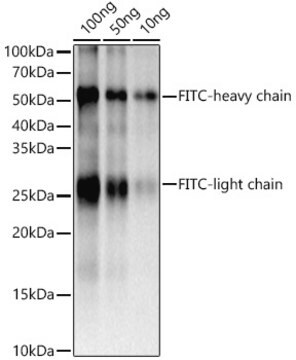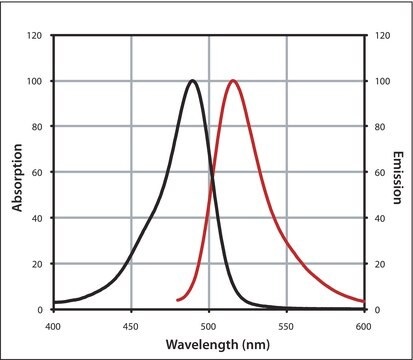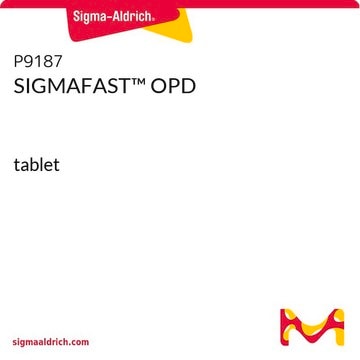General description
We are committed to bringing you greener alternative products, which adhere to one or more of The 12 Principles of Green Chemistry.This antibody is Preservative-free, produced without the harm or sacrifice of animals and exceptionally stable to allow for ambient shipping and storage if needed and thus aligns with "Waste Prevention", "Designing Safer Chemicals" and "Design for Energy Efficiency".
Click here for more information.
ZooMAb® antibodies represent an entirely new generation of recombinant monoclonal antibodies. Each ZooMAb® antibody is manufactured using our proprietary recombinant expression system, purified to homogeneity, and precisely dispensed to produce robust and highly reproducible lot-to-lot consistency. Only top-performing clones are released for use by researchers. Each antibody is validated for high specificity and affinity across multiple applications, including its most commonly used application. ZooMAb® antibodies are reliably available and ready to ship when you need them.
Specificity
Clone 1K2 is a ZooMAb® rabbit recombinant monoclonal antibody that specifically detects Protein FAM72A. It is predicted to react with FAM72 A, B, C, and D. It targets an epitope within 17 amino acids from the C-terminal region.
Immunogen
KLH-conjugated linear peptide corresponding to 17 amino acids from the C-terminal region of human Protein FAM72A.
Application
Quality Control Testing
Evaluated by Western Blotting in HEK293 cell lysate.
Western Blotting Analysis: A 1:1,000 dilution of this antibody detected FAM72 in HEK293 cell lysate.
Tested Applications
Western Blotting Analysis: A 1:1,000 dilution from a representative lot detected FAM72 in lysates from A431and NIH3T3 cells and and Rat colon tissue.
Affinity Binding Assay: A representative lot of this antibody bound FAM72 peptide with a KD of 1.3 x 10-7 in an affinity binding assay.
Immunohistochemistry (Paraffin) Analysis: A 1:100 dilution from a representative lot detected FAM72 in Human colon tissue sections.
Immunocytochemistry Analysis: A 1:100 dilution from a representative lot detected FAM72 in HEK293 cells.
Note: Actual optimal working dilutions must be determined by end user as specimens, and experimental conditions may vary with the end user.
Target description
Protein FAM72A (UniProt: Q5TYM5; also known as Latent membrane protein 1-induced protein, LMP1-induced protein, LMPIP, FAM72A) is encoded by the FAM72A (also known as UGENE) gene (Gene ID: 729533) in human. FAM72A is an evolutionarily conserved protein that functions as a major determinant for the error-prone processing of deoxyuracils. It is reported to interact with the nuclear isoform of uracil DNA glycosylase 2 (UNG2) and is overexpressed in several cancers. FAM72A-UNG2 interaction controls the levels of UNG2 by triggering its degradation, particularly in the G1 phase of the cell cycle. This interaction also plays a key role in antibody diversification in B cells. CH12F3-2 B cells deficient in FAM72A and B cells from FAM72A -/- mice exhibit reduced class switch recombination and somatic hypermutation at immunoglobulins and Bcl6 gene, and exhibit reduce genome-wide deoxyuracils. FAM72A is a cell-cycle-regulated gene that is transcriptionally and post-transcriptionally regulated by
Physical form
Purified recombinant rabbit monoclonal antibody IgG, lyophilized in PBS with 5% Trehalose, normal appearance a coarse or translucent resin. The PBS/trehalose components in the ZooMAb formulation can have the appearance of a semi-solid (bead like gel) after lyophilization. This is a normal phenomenon. Please follow the recommended reconstitution procedure in the data sheet to dissolve the semi-solid, bead-like, gel-appearing material. The resulting antibody solution is completely stable and functional as proven by full functional testing. Contains no biocide or preservatives, such as azide, or any animal by-products. Larger pack sizes provided as multiples of 25 µL.
Reconstitution
30 µg/mL after reconstitution at 25 µL per vial. Please refer to guidance on suggested starting dilutions and/or titers per application and sample type.
Storage and Stability
Recommend storage of lyophilized product at 2-8°C; Before reconstitution, micro-centrifuge vials briefly to spin down material to bottom of the vial; Reconstitute each vial by adding 25 µL of filtered lab grade water or PBS; Reconstituted antibodies can be stored at 2-8°C, or -20°C for long term storage. Avoid repeated freeze-thaws.
Legal Information
ZooMAb is a registered trademark of Merck KGaA, Darmstadt, Germany
Disclaimer
Unless otherwise stated in our catalog or other company documentation accompanying the product(s), our products are intended for research use only and are not to be used for any other purpose, which includes but is not limited to, unauthorized commercial uses, in vitro diagnostic uses, ex vivo or in vivo therapeutic uses or any type of consumption or application to humans or animals.









